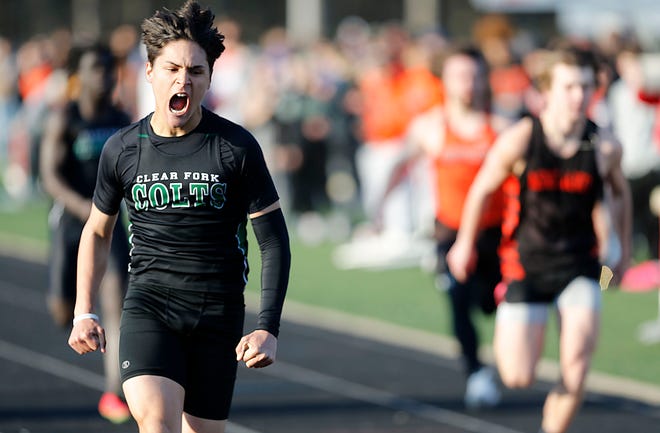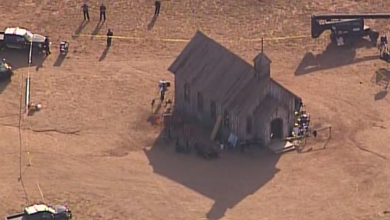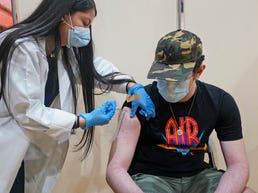

BELLVILLE − The beauty of an athlete having a breakout campaign is that it's unexpected to many who watched that individual prior to the season they burst out. It comes out of nowhere.
However, when that athlete does break out to produce a season unexpected to the outside world, it might come as a surprise to observers. But to that athlete, there's no level of mystery to the success they're suddenly having. It was all planned, coordinated and envisioned long before that breakout season happened.
Clear Fork junior Joe Stupka can attest to just that, as he went from virtually unknown in the track world to becoming not just one of the best sprinters in the Mansfield/Ashland area but in the entire state of Ohio this year.
As the late NBA great Kobe Bryant would frequently vocalize, "It's not the destination, It's the journey."
Learning curve and time at Madison
Stupka spent his first two years of high school as a Madison Ram, and got into track during his freshman year. It was then track coach Andrew Saris, who is currently the head football coach at Lexington High School, who pushed Stupka into getting on the asphalt.
Even before then, he acknowledged that running − better yet sprinting − was always in his veins.
"In baseball, I always used to steal bases like crazy and so I was like maybe track is my thing," Stupka said. "Turned out pretty well so far."
When it comes to the Stupka family, track and field has been something that runs in the household.
"My sisters both ran. One of my sisters sprinted and my other sister ran the 800. She was a regional qualifier in the 800 at Elyria," said Stupka. "Now my sister [Mary] is on the team with me as a freshman."
Then there's his older brother Phil, who was his track teammate at Madison in Joe's first two years and presently runs at Malone University in Canton.
"We were always around each other and competing against each other," said Stupka, looking back on him and Phil's battles in individual races at meets. "Right now, he's one of my biggest supporters. After competing all those years, he always said, 'If anyone's going to beat me, it's going to be him and not anyone else.'"

While Stupka had the running gene inside him, he'll be the first to profess that he didn't really take the sport serious in the beginning.
"A lot of coaches can attest to that," Stupka said. "There was this one time when Coach Saris brought me into his office and he kind of got my head straight. That's when it changed right there."
Stupka also credited Phil and former Madison track teammates Ethan Spillman and Isaac Brooks − an All-Ohioan in the 100 and 300 hurdles as a senior last year − as some of the guys who helped steer him in the right direction.
"That really helped me as to where I'm at now," Stupka said. "... Those guys were always on me. I think they saw something in me that I didn't."
Even now, Phil's words of wisdom have rubbed off on his younger brother. Those lessons are deep-seated into the way Joe goes about his business.
"Preparation. Getting your body to recover. Diet. He really got my diet straight," said Stupka. "It's the little things like mentally such as not psyching yourself out before a race. Not looking at all those heat sheets and seeding times because they don't mean anything until you run the race. That's what he's taught me. You gotta run your own race and don't worry about everybody else's."
Stupka described his freshman year as "my first year getting over the hump." He saw top-level competition.
"Seeing how they prepare, seeing how they run and how they act," he said. "Coach Saris ran that program great. He's still one of my biggest supporters now and texts me sometimes."
As a sophomore, Stupka stepped things up. More of a relay runner, Stupka says the 4x200, 4x400 and 400 were his main three events. He was a part of Madison's 4x200 relay team that finished as runner-up at the Division I district meet and was a regional qualifier last year.

"Sophomore year, I trained real hard in the winter," he said. "I came out and saw a big jump and I was like this is what I want to do."
A step up was made in the individual events but they were relatively mixed results.
"Last year, the meet that I really came out in was the Marion Invitational [Marion Harding Night Invitational]. I ran my PR (personal record) in the 400 (4th place) in a 51.67," said Stupka. "After that, I went to OCCs (Ohio Cardinal Conference meet) and PR'd in the 100 (6th place) and ran a similar time in the 400 (4th place) but then the week after we had districts and I got caught up looking at all those numbers. I did not run a very good 400 (14th place in prelims and missed qualifying for regionals). I regret that one because I felt I could have ran that better."
Change is Good
Leading into this school year, Stupka transferred to Clear Fork for his junior year.
"My dad [Dave] changed coaching jobs. He resigned as the head coach at Madison (2018-21)," Stupka explained. "Then Coach [Dave] Carroll hired him to be the defensive coordinator and we had a very successful year. I was on his defense and played DB. That was a fun experience. I got more playing time as the year went along."
Ultimately, Stupka says a change of scenery was needed when it came to track.
"It was mainly him coming to coach here but I really think I needed a fresh start. A new school. A new environment," Stupka said. "He asked me first if I wanted to change and I said absolutely. I completely supported it so that's what led to it."
Enter Coach Eric Beck.
This is Beck's first year as track coach at Clear Fork but he's been lending a helping hand to track kids in Bellville for a few years. Beck is a Nuclear Cardiology Technologist at Ohio Health.
"Up until last year, I've been helping sprinters and jumpers at the middle school level," Beck said. "My son moved up to high school, so I kind of wanted to follow him up and that's how I stepped into this position."
Prior to the track season starting in late March, Stupka and Beck had been working together nearly every day for six months. They both vividly remember their first encounter.
"I came here on the first day and he looked over at me and asked, 'Are you Joe?'" said Stupka smiling. "I'm not sure if he knew but as soon as we came out for top-speed, he knew what I was bringing."
"Day One when I met Joe on this track, were doing top-speed timing and I inherited him quite fast already," said Beck. "There were some obvious mechanical issues that were a low-hanging fruit that I knew could make him tremendously faster. Speed grows like a oak tree, really slow. There's no secret sauce or magic pill that takes someone to kind of fast to Joe-level fast. It takes time."
From there, a fruitful coach-athlete partnership was formed.
When it comes to Beck's coaching philosophy, he is a stickler for making sure his athletes are fundamentally sound. He likes to say he teaches "technique over torture" during practices.
"I want them to do it right until they can't do them wrong," said Beck. "Joe is definitely one of those athletes that has bought into that methodology."

A major influence in the way Beck teaches his athletes stems from acclaimed track and field coach Tom Tellez − Beck's coaching idol − who is known for coaching world-class track athletes, most famously the legendary nine-time Olympic gold medalist Carl Lewis.
Tellez is widely noted for his contributions to kinesiology and Lewis is currently the head track coach at his alma mater, the University of Houston. Last year, Beck got the chance to spend up to a week with both on the Houston campus and received quite the education.

"I've had the good fortune at getting to know those guys real well and Coach Tellez's influence has just been tremendous, "Beck shared. "One thing that guy is able to do is see what the athlete can't see. See what needs correcting. When I was at Houston, one of the things that Carl asked me was, 'What stood out the most during your visit this week?' And I said, 'You guys are saying the same thing to these world-class athletes here at Houston that I'm saying to seventh-, eighth-, ninth-, and 10th-graders in middle school and high school.' He said there are two things that separate these guys from middle school athletes and that's they 'do the fundamentals and basics better and they just have more horsepower.'"
Beck points to Tellez and Lewis' 2020 published book called The Science of Speed The Art of the Sprint that includes science-based fundamentals that can help track athletes of all levels, as a "wealth of knowledge." He advises anyone involved in track and field to read it. Beck took that knowledge back to Clear Fork and has ingrained it in not just Stupka but in all of his athletes.

"Coach Beck has really opened up my eyes," Stupka said. "He really fixed my form. Completely almost overhauled all of the stuff I was doing. He's so supportive every day and he cares about every athlete. Not just me but every athlete. He coaches everybody and he never stops working. I'll text him at 11 o'clock on a Sunday night and he almost responds instantly. He's definitely the guy that has changed it around for sure."
Beck saw some things that could be easily corrected.
"A few things Joe was doing was that he was over-reaching out the front side, which is death to speed. He was running on his toes, which is death to speed," Beck said. "... A lot of times athletes feel like there doing something right but when I show them in slow motion they realize what they were feeling wasn't exactly what they were doing. There's this gratification they get from seeing there own progression."
Making The Leap
Stupka and Beck put their newfound collaboration to the test during indoor track season over the winter.
Stupka medaled (top eight) in the 60, 200 and 400 meters in meets at Ohio State and at SPIRE Institute in Geneva. He returned to SPIRE for the Division II-III indoor state championships in early March, and was a medalist in all three sprint events.

Stupka gained a ton of confidence from his indoor success, not just because of the medals but also by holding his own against some of the state's top sprinters (Mason Louis of Bexley, Christian Anderson of Hawken and Jayden Douglas of Beechcroft).
Stupka knew his hard work was paying off. That includes his work with Beck's son, Ethan, who's his training partner and Clear Fork teammate.

"People only see the highs. The high of a high is not as bad as the low of a low, if that makes sense," said Stupka. "They don't see when you're grinding at practice, especially when no one is watching. We were out here preparing for indoor and it was just me and the coach's son just competing. That's all I had. No one else came out here. Coach Beck, Ethan and me. Those are the guys who saw it and no one else. That's when you really have to perform."
Transition over to the outdoor track season, and Stupka is tearing it up on the pavement and leaving the rest of the opposition in the dust.
Three times − so far − this season, Stupka has pulled off the 100-200-400 sweep at track meets/invitationals.
The first one came on his old stomping ground at the Madison Comprehensive Invitational on March 30 to open the season. He won the 100 (11.11), 200 (22.26) and 400 (51.32), breaking the meet record in each.
"I planned on that for a year," said Stukpa adamantly. "I don't think they know − they do now − what they lost and my point was to go out there and show them what they lost. It was a very emotional track meet for me, seeing my old coaches and old teammates. It was weird at first but I have had about a 100 practices here. I did my thing and it felt pretty good."
More multiple sprint wins have followed this month, including winning the 100 and 400 at the Marion Harding Invitational.

Stupka is not surprised by his 100-200-400 feats and takes pride exceling in all three.
"I like to take care of all three because it really shows your versatility and range to do all three, especially because I'll be doing that come championship season," he said.
Now for the big one: The Mansfield Mehock Relays.
The meet has been one of the most historic high school track meets throughout Ohio in its lengthy history, and a showcase event for many of the top athletes and schools to strut their stuff. If the Madison Invitational was Joe Stupka's coming-out party, then Mehock is where he confirmed to everyone: "I'm here and I ain't going nowhere."
At the 90th Mehock, Stupka was the star of the show, winning the 100 and 200 against some of the most noteworthy talents in the state of Ohio. That includes the 100-200-400 champion at last year's Mehock Relays in Mansfield Senior's Keontez Bradley (who finished runner-up to Stupka at Mehock and at the Madison Invite in both the 100 and 200), as well as Plymouth's Caiden Allen, Shelby's Issaiah Ramsey, Mansfield's Aaron Thornton, and Beechcroft's Jesufewa Adediran and Joel Owusu.

"Our training that whole week was all Mehock. A couple of my teammates went to the Ontario Relays but my focus was on Mehock that week," said Stupka, who dropped the 400 to focus more on the 100 and 200. "... You have to prepare yourself for that competition. I'm exactly there with those guys, if not better.
"You can't get nervous with that stuff. You start to view competition as an opportunity when you get to that level. Like that's an opportunity to show I'm not just a guy winning these small meets. I can win the big ones too. It was very satisfying to run that well on that big of a stage."
Balancing Events and Programming
Talk to Stupka long enough and you'll realize he is an athlete who's never satisfied. Grateful for what he's done so far this year but there's more to be accomplished.
"Don't ever let the complacency kick in. You get humbled as soon as you think you've arrived," he said. "Can't ever let that happen. Now you can have time to celebrate but my rule is you get one day and then it's done and onto the next one."
"He's really shown just a level of commitment that's unbelievable," Beck said. "He's just incredibly focused and disciplined. And it shows. He went from being a pretty fast guy to one of the fastest guys in the state of Ohio."
What's impressive about Stupka is the level of mental and physical preparation in which he attacks each sprint. Each differently at that.
"For the 100, before I get into the blocks I envision that last 10 meters of the race. I believe that race is won in the last 10 to 20 meters," said Stupka, who declares the 100 as his easiest event of the three sprints, partially because he doesn't get as nervous in it like he does in the 200 and 400. "Whoever can hit that gear and don't panic coming out of the blocks and be patient, will win. I usually catch a lot of my guys at 70 meters and just hold on and hit that gear."
How about the 200?
"It's similar with the 200," he said. "Get out just like a 100 and just hold on. I believe the 200 is my best race because it gives me a mix of that endurance that I have and my top-end speed."
Although when Stupka breaks down the 400, he looks at it having the right mental capacity. He calls it his most challenging event.
"A lot of the races are mental," explains Stupka. "Looking at how big a track is before you run the 400, it's like it's longer than you think. You can't think about that. I know exactly how to run the race. Your muscles don't know the difference between a duel meet and a state meet, only your mind does."

To go along with having the cerebral mindset to his sprints, Beck also points to "programming, timing and trusting" as three key elements he uses when preparing and instructing Stupka and his athletes.
"Part of what makes the development of athletes I'm working with special for me is it's based on earned mutual trust. Joe trusts me and I trust him to do what I teach him," said Beck. "When I tell him we have a scheduled day off, it's for a reason because you need recovery. During indoor season, I pulled him out of two finals because I could see that he was favoring his hamstring. One of the rules we live by is that we protect the gift.
"Joe was hesitant with that because I was a new coach. We didn't know each other real well. I kept telling him to trust your training. So he kept seeing the outcomes where he was expecting a PR at every meet."
Strategizing certain workouts accordingly and planning what races he will run at meets has played huge dividends in Stupka's form right now. And Beck has been carefully orchestrating his star sprinter's next move.
"It comes down to programming," said Beck. "When I say programming, the workout that we did today wasn't thought out today. It was thought out in January. I could've told you in the second week of January what we'll be doing on April 19. We choose the meets where we want to excel. Obviously, championship season is district, regionals and state. But there was one meet we obviously wanted to peak at and that was at the Mehock Relays.
"We pick dates. We reverse-engineer our workouts to put us at a peak on that date. That peak happens because of what we did three-to-four weeks out preparing for that completion date. It's not what we did that week. It's way to late. The programming is key to performing. Joe is able to perform at a high level because I know what he's going to run before he knows based on timing."
Not to mention the "lactate workouts" Stupka partakes in.
"The lactate workouts increases the burn in your legs," Stupka said. "The burn in your legs is basically lactate acid. We do workouts to increase the lactate threshold, like how much you can hold on. That comes in during the 200 and 400 meters. When you start getting a higher lactate threshold, that second half becomes a lot easier and you end of running a lot faster than you did earlier in the year."
Still, Stupka doesn't look at juggling all three sprints at meets as tiresome, he views at it as a psychological hurdle to climb.
"You feel it but its just mental," he said. "Mentally you just have to get through it. It's like a second in the race where you have to decide do you wanna fall back or get through this push. Honestly, I don't think it affects me."
Gunning for the top spot
Stupka has been in such a zone this year that he has hit his personal best times in the 100, 200 and 400, although he said he's aiming to get in the 10.6s in the 100, around the 21.5s in the 200 and wants to reach up to 48 seconds in the 400.
"For outdoors, I met my PRs. I didn't hit them until I faced that top-level competition," he said. "I think that's perfect because that is what is going to prepare me as the season continues. We have a really good division. Division II is stacked this year in the state. I'd argue it might be even better than Division I this year."
With postseason looming, Stupka is setting his goals high, while Beck focuses on managing his workload judiciously.
"I think we will selectively put him at meets where we think he will peak at the appropriate time we feel is most important," Beck said. "There will be meets where he will run all three and meets he will run two. If there is meets he will need volume, we'll let him do all three. If we feel like he's had too much volume, we might take something out. You have to constantly be reassessing where you're at in the plan and give yourself enough flexibility to pivot."

Stupka wants to sweep the three sprints at the Mid-Ohio Athletic Conference and district meets next month, and from there, qualify for state in all three.
"At state, I want to podium (top-eight finish) in all three," he said. "You don't really see that often. It's fun to show off your range."
Press Stupka on the topic of what is his central motivation, and he'll echo something his mother regularly tells him.
"My mom says, 'It's the chip on your shoulder mentality,'" he says with pride. "Trying to prove everybody wrong. Nobody expects it. It's really proving to myself. I want to be able to run in college. This is my way of getting in. This is my thing. I enjoy it. I love what I do. That's my motivation. I like to show that I like to run fast."
We'll see where Joe Stupka's journey takes him next.
Twitter:@JamesSimpsonII
Source link









